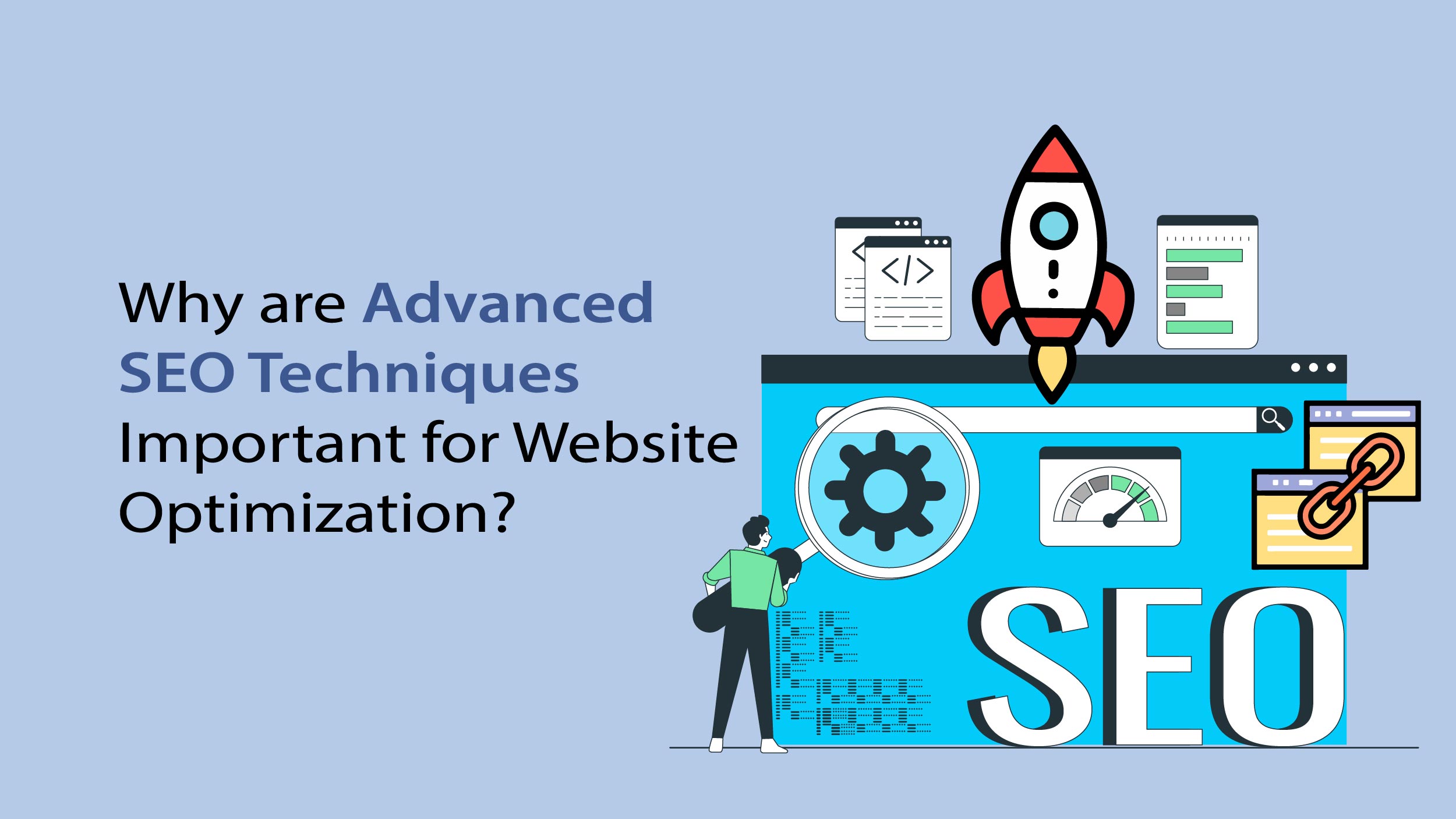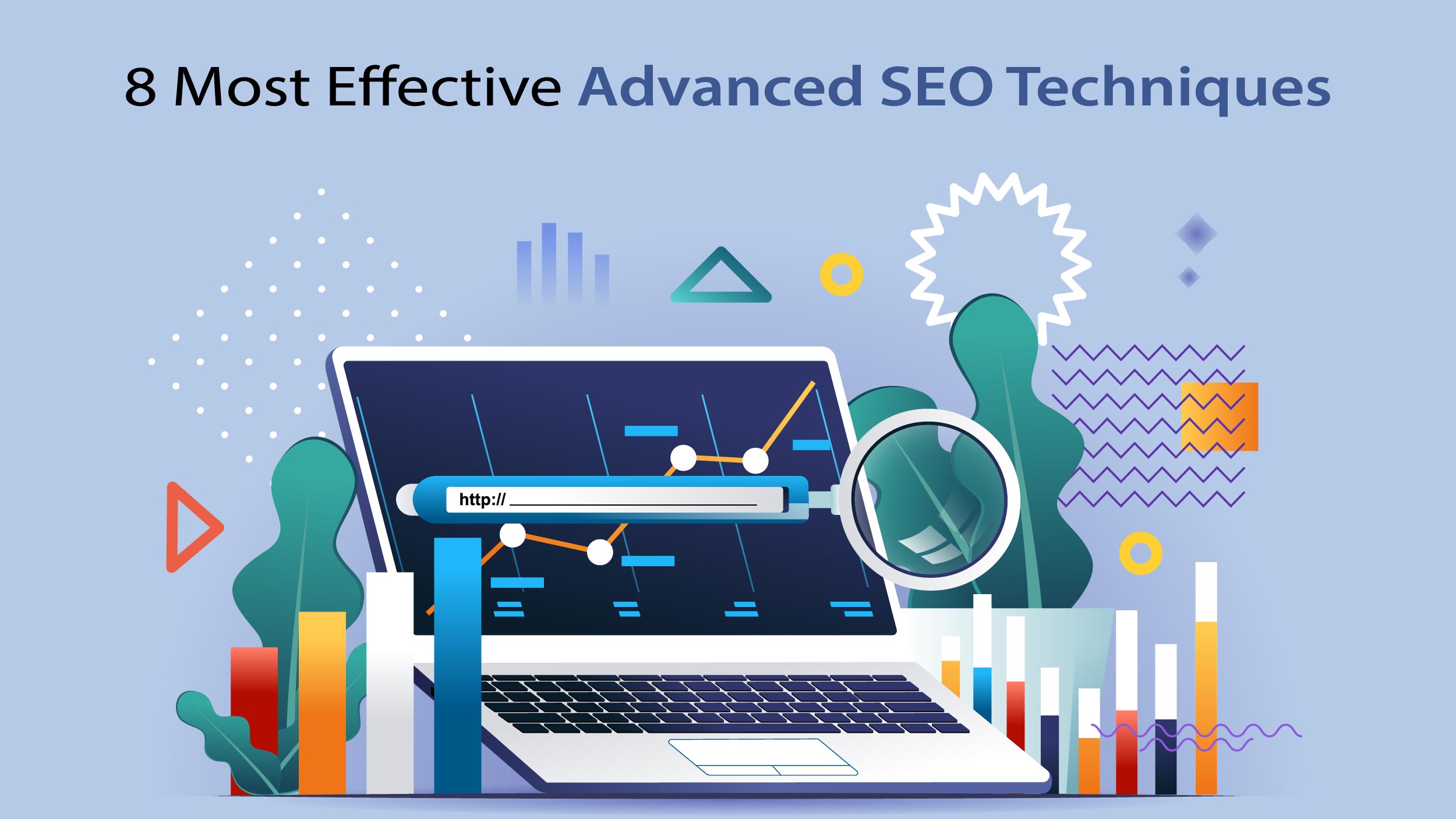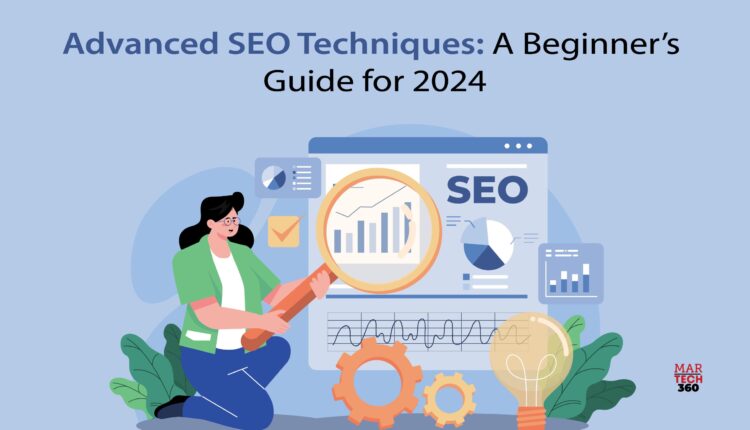Advanced SEO techniques refer to a set of strategies that requires intense knowledge of search engine algorithms, how SEO works, and how marketing technologies can be used to improve businesses.
These techniques don’t cover basic SEO strategies which gives your company an edge over your competitors. This article answers what are advanced SEO techniques and why are they important for website optimization. Let’s delve in.
What are Advanced SEO Techniques?
Advanced SEO techniques encompass a range of strategies that extend beyond the fundamentals of search engine optimization. These tactics demand a nuanced comprehension of SEO principles, search engine algorithms, and marketing technology, aimed at providing a competitive advantage and enhancing website visibility and rankings.
Examples of advanced SEO techniques include enhancing content’s time to value, targeting long-tail keywords, securing backlinks through podcasts, establishing content hubs, optimizing content for keyword relevance, expanding SERP visibility, employing dynamic parameters for pagination, and identifying “People Also Ask” keywords.
Why are Advanced SEO Techniques Important for Website Optimization?
 Advanced SEO tactics matter for site optimization, enabling you to surpass basics and gain an edge digitally. Here’s why advanced SEO techniques are crucial:
Advanced SEO tactics matter for site optimization, enabling you to surpass basics and gain an edge digitally. Here’s why advanced SEO techniques are crucial:
Visibility Boost:
They enhance visibility in search engine result pages. Targeting long-tail keywords, optimizing for featured snippets, and maximizing SERP presence increases the chances of reaching your audience.
Higher Rankings:
Advanced techniques boost site rankings. Optimizing on-page and off-page elements like content, meta tags, backlinks, and user experience signals relevance and authority, leading to higher rankings.
Organic Traffic Increase:
With better visibility and higher rankings, advanced SEO drives more organic traffic. By targeting specific keywords, optimizing for user intent, and creating quality content, you attract relevant visitors likely to convert or engage.
User Experience Enhancement:
Advanced SEO involves optimizing technical aspects like site speed, mobile responsiveness, and user-friendly navigation. Providing a seamless, enjoyable experience improves SEO, boosts engagement, and increases satisfaction.
Competitive Edge:
Having an edge is important when it comes to online competition. SEO techniques that are advanced can help you surpass your rivals. By continuously optimizing your site and using emerging SEO strategies while tracking the newest trends, you can outperform competitors and drive increased organic traffic flow.
Also Read: Video SEO: Everything You Need to Know to Rank Your Videos in 2024
8 Most Effective Advanced SEO Techniques
 Below are the top 8 of the most effective advanced SEO techniques marketers can incorporate into their strategies in 2024.
Below are the top 8 of the most effective advanced SEO techniques marketers can incorporate into their strategies in 2024.
Audit Your Site for Indexation and Crawlability Issues
It is essential to audit a website for crawlability and indexation problems in order to maximize search engine exposure and accessibility. It assists in locating technical problems like broken links, duplicate content, server faults, or improper redirect handling that can prevent search engine bots from crawling and indexing.
Improved crawlability makes it easier for search engine bots to access and explore pages, while proper indexation guarantees that all pertinent pages are indexed. Frequent audits also enhance the user experience by facilitating users’ access to and discovery of important content.
It also provides a competitive edge by raising the likelihood of ranking higher in search results and drawing in more natural search traffic.
Integrate tools for in-depth SEO reporting
You can view some of the data together if you link your Google Search Console and Google Analytics accounts. For instance, you will receive query statistics from the console for the following queries in your analytics: keywords, their impressions and clicks, click-through rate, sessions and pageviews, and bounce rate. You can select your top keywords to optimize for using these statistics.
The Analysis Hub in Google Analytics 4 enables you to create customized reports for thorough SEO analysis.
Build Solid Topic Clusters
A topic cluster comprises interconnected articles or content pieces centered around a specific theme, linking strategically to and from one another.
These clusters offer thorough coverage of a subject, enhancing topical authority and ensuring visitors find answers to their queries and subsequent questions on your website.
Usually, topic clusters are anchored by a pillar page, addressing a broad topic, with supporting content covering related subtopics. Each piece within the cluster links back and forth to the pillar page.
Streamline Your Website Structure
Having a streamlined website layout is crucial for your site’s technical SEO, particularly if you have many pages.
However, it can be challenging to determine whether your site’s structure is flat (which is good) or excessively deep (which is bad).
That’s where visualizing your sitemap becomes invaluable. Tools like Semrush’s SEO audit or VisualSitemaps can help you gain insight into your website’s architecture and make necessary adjustments.
Internal Linking
Internal linking helps search engines understand your content and site structure. It also helps users move around your website. You should link pages with related topics.
When adding links, ensure they lead to pages with related topics, using descriptive words to indicate where the link directs users. This approach not only aids search engines in understanding your content but also makes it easier for users to explore your site seamlessly.
Link popular pages to other relevant pages on your site.
Find out which pages get the most links using Backlink Analytics. Link from those well-linked pages to boost visibility for other important pages. When you add a new content, link to it from popular pages. But link only if the pages relate to each other. Choose linking words carefully to match the topic.
Focus on Comparison Keywords
Comparison keywords refer to terms that contrast different entities, such as:
- Traditional SEO vs ChatGPT
- Mobile vs Laptop
Why are these keywords valuable to target?
Firstly, individuals searching for comparison keywords typically possess a higher level of understanding. For instance, someone querying “SEO tools” might be new to the field, whereas a search for “Ahrefs vs Semrush” indicates familiarity with SEO tools and a desire to make informed choices.
Moreover, comparison keywords often present less competition, offering an opportunity for your content to stand out.
Pro Tip: Develop content tailored to “you vs competitor” comparison keywords. Companies like Drift have effectively utilized this strategy to create informative and engaging pages.
Avoid Keyword Cannibalization
Are you inadvertently practicing keyword cannibalization? It’s time to put a stop to it. Keyword cannibalization occurs when multiple pieces of content on your website are optimized for the same focus keyword. This can lead to your website competing against itself for Google rankings.
Instead of repeatedly targeting the same keyword, consider enhancing the existing content you’ve already published. Alternatively, you can choose a variation of the keyword and aim to rank for that instead.
Create SEO-Enhanced Landing Pages for Products and Services
If you’re aiming to generate leads for product or service sales via your website, consider constructing SEO-optimized landing pages. Instead of directing site visitors to your content or homepage, guide them straight to a landing page where they can swiftly take action.
To maximize the effectiveness of lead-generation landing pages, it’s crucial to enhance your SEO copywriting skills. Landing pages are tailored to specific topics. For instance, if you’re offering services, you might develop separate pages for blog copywriting, website copy, and other services. This approach narrows down your target audience and the keyword sets you’ll be focusing on.
Final Words
Succeeding in SEO within competitive industries necessitates moving beyond the fundamentals.
It’s an ongoing journey that requires constant analysis, experimentation, and fine-tuning.
However, through the strategic application of advanced SEO techniques and creative utilization of available tools, you can enhance your search visibility and gain the competitive advantage you seek.


Comments are closed.